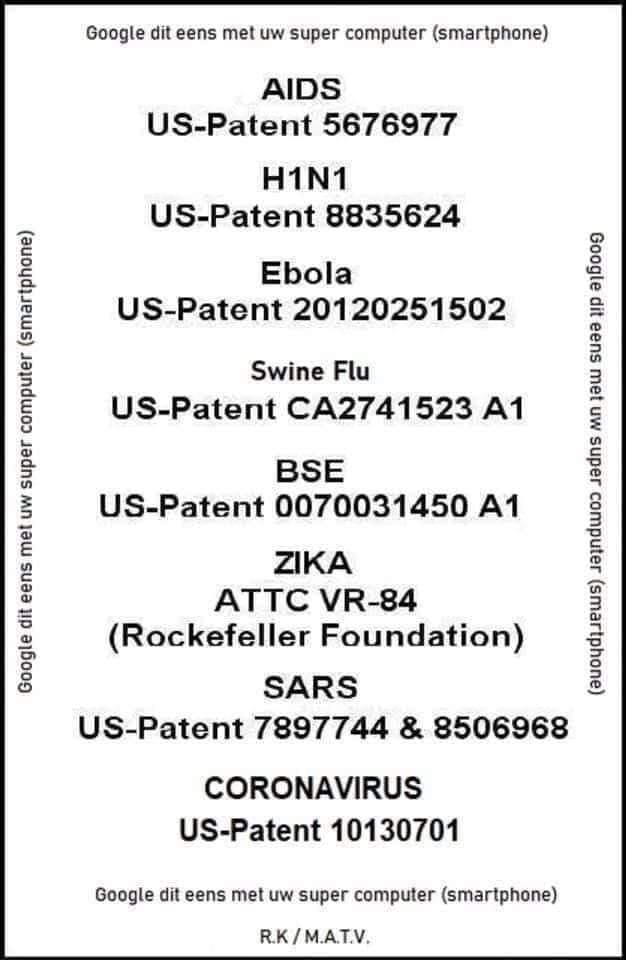Warrior for Truth
@Warrior_for_Truth
25 January, 06:03
Notice: Undefined index: tg1tga_access in /home/admin/www/anonup.com/themes/default/apps/timeline/post.phtml on line 396
Sabrina Gal
@Sabrinagal
25 January, 09:49
In response Warrior for Truth to his Publication
Evil beyond belief.
Notice: Undefined index: tg1tga_access in /home/admin/www/anonup.com/themes/default/apps/timeline/post.phtml on line 396
J.J. Jameson
@jjj
26 January, 04:02
In response Sabrina Gal to her Publication
Not really. Misleading beyond belief, if anything.
The first three patents are:
A proposed treatment
A detection mechanism for blood samples
A proposed method to produce a vaccine
They don't patent the disease. None of them do.
The first three patents are:
A proposed treatment
A detection mechanism for blood samples
A proposed method to produce a vaccine
They don't patent the disease. None of them do.
Notice: Undefined index: tg1tga_access in /home/admin/www/anonup.com/themes/default/apps/timeline/post.phtml on line 396
Indeed, the patenting of genetically modified or isolated viruses is nothing new, says David Schwartz, a patent lawyer and partner at the Canadian intellectual property firm Smart & Biggar.
"You can’t patent a disease condition per se, such as cancer or influenza," says Schwartz. "But if you’re talking about patenting a lifeform like a bacteria or virus, if altered by man, the answer there is yes."
You can’t patent something that is naturally occurring, he says, but if an organism is modified in some way, it is patentable.
"You can’t patent a disease condition per se, such as cancer or influenza," says Schwartz. "But if you’re talking about patenting a lifeform like a bacteria or virus, if altered by man, the answer there is yes."
You can’t patent something that is naturally occurring, he says, but if an organism is modified in some way, it is patentable.
08:59 PM - Jan 27, 2021
In response J.J. Jameson to his Publication
Only people mentioned by beatledeedee in this post can reply

